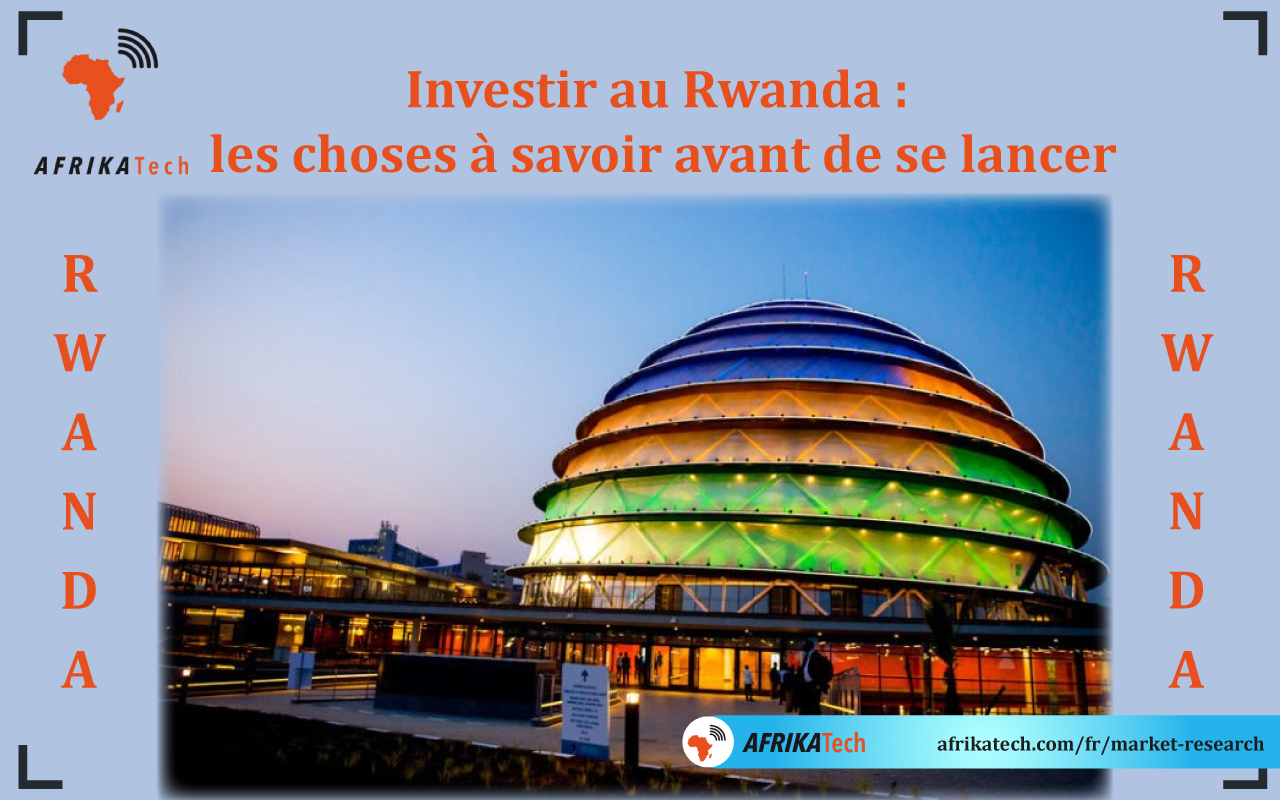Rwanda is a small country located in East Africa with a population of around 12 million. After the tragic events of 1994, the country succeeded in putting in place economic and structural reforms in order to sustain its economic growth thanks to the support of the IMF and the World Bank. Rwanda is expected to achieve growth of 8% in 2020 and 8.2% in 2021, driven by large-scale investments, particularly in the construction of Bugesera Airport, the Gisagara thermal power plant, the Hakan peat plant. and others.
What are the growth sectors?
Rwanda offers investment opportunities both on the local market and on the overseas market outside the continent and on the sub-regional market of the East African Community. Among the promising sectors, we find:
Ø Industry: driven by construction and manufacturing.
Ø Agriculture: it represents 35% of the GDP and about 70% of the country’s employment. Rwanda processes and exports coffee and tea which are the main cash crops. The climate and the land in Rwanda are favorable for horticulture. The latter is the cultivation of fruits, vegetables and varieties of ornamental plants. Vegetables (carrots, tomatoes, green peppers and green beans, onions etc.), fruits (pineapples, avocados, passion fruits etc.), nuts (peanuts or macadamia nuts ), flowers (roses or sunflowers, etc.) and spices (ginger and spice mixtures, etc.) are some products from Rwandan horticulture. These products, exported among others to Europe, the USA, Burundi, represent a significant added value in the economy of the country. It is a growing sub-sector.
Ø Tourism: the main attraction is the gorilla population of the Virunga mountains. The fauna and flora are also very diverse. Business tourism is virtually untapped.
Ø Information and communication technologies: with many innovations that extend to several business sectors (health, commerce, mobile telephony, the Internet, etc.)
Ø Road, rail and airport infrastructure.
Ø Mines: the country has numerous deposits of minerals and precious stones that have not yet been exploited. Apart from Coltan, tin and even gold, it has recently been discovered cobalt, iron, lithium, rare earth elements.
Why invest in Rwanda?
The Rwandan environment is calm and secure. Its crime rate is very low compared to other countries in the sub-Saharan sub-region and the country enjoys political stability. It would be the 5th safest country in the world to walk around at night.
Rwanda is also very stable economically speaking. Since 2007, it is the second fastest growing economy in Africa at 7.5% per year. About 70% of the population is under 30 years old. The currency is stable. It has a very low debt ratio and stable credit ratings. There is very little corruption in the country. It is the 4th least corrupt country in Africa and is 51st in the world with 53 points according to the latest report from Transparency International.
The Rwandan government has created a business environment conducive to international and local investment. According to the World Bank, Rwanda compared to its neighbors facilitates the creation of companies (it would seem that in three days and with just two procedures a company is set up, against twenty-two days and ten procedures for its neighbors) the same is true for registering a business. Administrative reforms allow foreign investors to engage in any sector (industry, agriculture, tourism, information and communication technologies, etc.) and to inject as much capital as they wish, no restriction has been put into effect in this regard. The investors are independent from the government with regard to the acquisition of means of production through the system of privatization of factors of production set up by the state. These reforms led to this favorable business climate for Rwanda to occupy the 67th position of the Doing Business ranking in 2010, in 2016 it occupies the 59th place and in 2020, it occupies the 2nd place in the Doing ranking. Business among the countries of sub-Saharan Africa. The criteria taken into account in this classification are, among others, regulations, infrastructure, the fluidity of administrative formalities and cross-border trade.
Rwanda is a member of COMESA, the Common Market for Eastern and Southern Africa, the objective of which is to establish a customs union among its twenty member countries, which represents a market of around 400 million people. It is also a member of the Community of East African States, which is one of the most dynamic communities on the continent which aims to establish a single currency and has around 140 million people.
The country has real assets for investments, however, structural problems such as the isolation and geopolitical tensions presented by the Great Lakes region, insufficient infrastructure, demographic pressure (population density is one of the most African highs) are parameters that cannot be ignored.


Leave a Reply